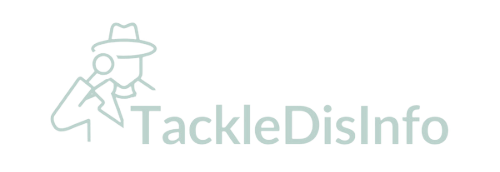The proliferation of misinformation online has escalated into a significant issue, marked by the spread of fake news, conspiracy theories, and various misinformation forms. Recognising the threat this poses to citizens and the foundation of democracy is now more crucial than ever. This urgency is also underscored by the 2022 Digital Economy and Society Index report, which reveals that a mere fraction of Europeans engaging with the internet demonstrate basic digital competencies.
TackleDisInfo aims to equip educators and trainers with the necessary digital literacy and critical thinking skills to counteract disinformation, nurturing digitally adept European citizens. To achieve this, TackleDisInfo is set to create an interactive digital platform, incorporating gamification strategies to educate educators and trainers on digital literacy and critical thinking, consistent with the EU’s (2022) Guidelines on Tackling Disinformation and Promoting Digital Literacy.
TackleDisInfo is set to create a VET educational package consisting of 4 modules, which will be transformed into an interactive digital platform utilising gamification techniques to enhance digital literacy and critical thinking skills. It will be rolled out across 5 EU countries (Spain, France, Belgium, Greece & Cyprus), targeting a minimum of 150 VET educators and trainers. Additionally, the project will launch awareness campaigns, featuring an international conference and 4 Information Days.
Therefore, TackleDisInfo aspires to meet this educational deficit by equipping educators with the tools to combat disinformation and foster digital literacy, pivotal for cultivating well-informed European citizens. These citizens will possess the acumen to discern between credible sources and falsehoods online. TackleDisInfo’s educational initiatives promise to arm educators with the expertise required to guide students in the digital realm, encourage the dissemination of accurate information, and integrate digital literacy into their teaching methodologies. Such efforts are crucial for the development of a resilient digital European community.
Objectives
The TackleDisInfo initiative is meticulously crafted to address the following series of interconnected objectives:
- Enhancing awareness and comprehension of digital literacy and critical digital skills essential for combating misinformation (WP2 & WP5).
- Developing a comprehensive educational package for educators, encompassing digital skills, effective strategies against online misinformation, and techniques for navigating the digital environment (WP2).
- Creating an innovative, gamification-based digital educational platform to train educators in digital literacy and skills (WP3).
- Facilitating the implementation of the EU’s 2022 Guidelines for Tackling Disinformation and Promoting Digital Literacy via interactive workshops (WP4).
- Establishing a sustainable model for ongoing educator training in digital literacy (WP5).
Target groups
TackleDisInfo’s principal focus lies on a broad array of VET educators and trainers. This encompasses tutors, professors from colleges and universities, alongside technical, business, corporate, and career development trainers. These individuals play a pivotal role in enhancing digital literacy and critical thinking skills across European populations. Their expertise is deemed essential in combating the spread of disinformation, conspiracy theories, and fake news by adeptly navigating the digital domain.
TackleDisInfo caters to a wide-ranging audience, including:
- The European Commission and other pertinent EU bodies keen on advancing digital literacy and the fight against disinformation.
- Policy makers at local, national and European levels that bolster digital literacy and critical thinking.
- Providers of education and training, such as universities and educational institutions, with a focus on digital literacy and critical thinking.
- Companies within the digital technology sector, recognised as significant contributors to the digital environment, tasked with fostering digital literacy and combating disinformation.
- Civil society organisations and advocacy groups, instrumental in heightening awareness around the significance of addressing disinformation.
- NGOs responsible for monitoring the project’s execution and its impact.
This initiative targets a comprehensive engagement with stakeholders pivotal in the digital literacy landscape, underlining the importance of a collective effort in mitigating the challenges posed by disinformation.

